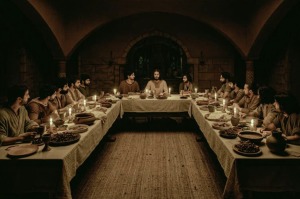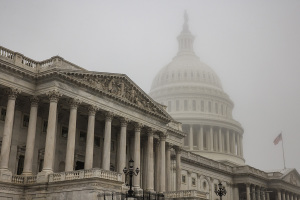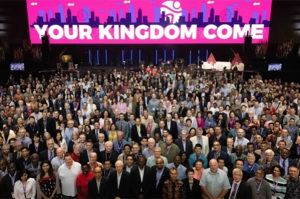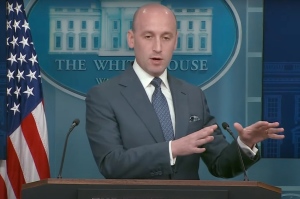Dr. King's Dream: The Golden Anniversary
On a hot, humid summer day fifty years ago, Dr. Martin Luther King Jr., ascended into the pantheon of America's national heroes when he delivered an oration for the ages.
The March on Washington was a momentous moment in the long, hot summer of America's discontent. Racial strife was widespread, sometimes officially condoned, and often violent. The March marked the coming of age of the Civil Rights Movement as a genuine national phenomenon. While many in official Washington expected violence, 250,000 people, black and white, gathered peacefully on the National Mall, demanding "jobs and freedom."
It should be remembered that on August 28, 1963 it was not Dr. King's march, and he was not even the featured speaker, but one of many. In a few remarkable minutes, Dr. King's speech permanently changed the Civil Rights Movement and altered the course of history.
Dr. King began his speech, working from a prepared text, something he usually did not do. As a Baptist preacher, he far more often extemporaneously wove together from memory segments of previous sermons and speeches, assembling them in differing and often new ways from speech to speech.
The speech was going well, but it was, as Civil Rights historian Taylor Branch noted, "far from historic." The great singer Mahalia Jackson cried out, "Tell'em about the dream, Martin!"
Whether Dr. King heard her or a higher power of inspiration, he did just that. Abandoning whole sections of his prepared text, Dr. King began sharing the dream, using terminology he had employed several times in the previous year, mostly in pulpits, but never before a national audience.
As Americans across the country watched and listened on live national television, Dr. King embarked on an outburst of oratory, which electrified the nation and elevated him to the status of the national immortals Jefferson and Lincoln – a "Founding Father" of the nation as Time proclaimed on its cover this week.
The words flowed over the crowd and electronically across the nation. "I still have a dream. It is a dream deeply rooted in the American dream."
He immediately returns to the theme with which he had started his speech and declares, "I have a dream that one day this nation will rise up and live out the true meaning of its creed: 'We hold these truths to be self-evident, that all men are created equal.'"
Dr. King then contrasts the ugly reality of 1963 Georgia, Mississippi, and Alabama with his dream of a racially reconciled future and deeply personalizes the dream of reconciliation and justice by proclaiming as a prophet and a father, "I have a dream that my four little children will one day live in a nation where they will not be judged by the color of their skin but by the content of their character."
As President Lincoln would put it, Dr. King was appealing to "the better angels of our nature" as individuals, as citizens, as a country. Dr. King gave us the vision, the goal, the destination:
When we allow freedom ring, when we let it ring from every village and every hamlet, from
every state and every city, we will be able to speed up that day when all of God's children,
black men and white men, Jews and Gentiles, Protestants and Catholics, will be able to join
hands and sing in the words of the old Negro spiritual: Free at last! Free at last! Thank God
Almighty, we are free at last!
Across the nation people were inspired and galvanized by the speech. I know I was as I watched the speech on television in my home in Houston. At sixteen I had just "surrendered to full time Christian service" (i.e., the ordained Baptist ministry) a few months previously. Dr. King's speech convicted me and changed me. During the course of his speech it because clear to me that it was not enough to declare racism to be sinful and wrong, as I had been taught to do by my parents. Indeed, I had a spiritual obligation and responsibility to confront it, to challenge it, and to combat it in the name of Christ wherever and whenever I encountered it. At that moment I understood the difference between orthodoxy (believing the right way) and orthopraxy (doing the right thing).
Difficult and grievous days were soon to come for Dr. King and for the nation. A little over two weeks later, on September 15, four little black girls were killed in a Klan church bombing in Birmingham. Continuing racial violence against blacks led many to question non-violence as a strategy.
Dr. King, however, persevered. He would not abandon the dream, and he would not let his fellow Americans abandon it either.
The night before Dr. King was assassinated in Memphis in 1968, he spoke to an overflow crowd late at night. He told them:
I just want to do God's will and He's allowed me to go up to the mountain. And I've looked
over and I've seen the Promised Land. Like anybody I would like to live a long life-
longevity has its place. But I'm not concerned about that now. I just want to do God's will. I
may not get there with you. But I want you to know tonight that we, as a people, will get to
the Promised Land. And so I'm happy tonight; I'm not worried about anything; I'm not
fearing any man. "Mine eyes have seen the glory of the coming of the Lord."
The next day Dr. King was murdered, but his dream lives on. Have we made tremendous progress toward realizing his dream for America? Yes. Do we still have a long way to go? Absolutely.
In his very perceptive and moving Time essay on Dr. King's speech, Jon Meacham noted that Dr. King "gave us a standard against which we could forever measure ourselves and our nation." He observed that "so long as his dream proves elusive, then our Union remains imperfect."
Conversely, as long as Dr. King's dream lives, vibrant and compelling, our nation will move ever closer to keeping its Founding promises and move ever closer to a more perfect union in which all men are equal and we don't judge people "by the color of their skin but by the content of their character."
On the 50th anniversary of this transformative national event, may we all pledge ourselves to a renewed effort to bring the dream to an ever-greater reality.





























